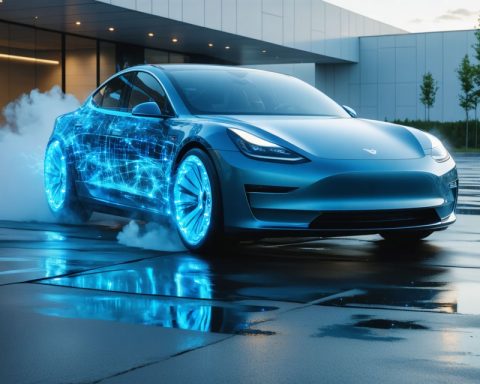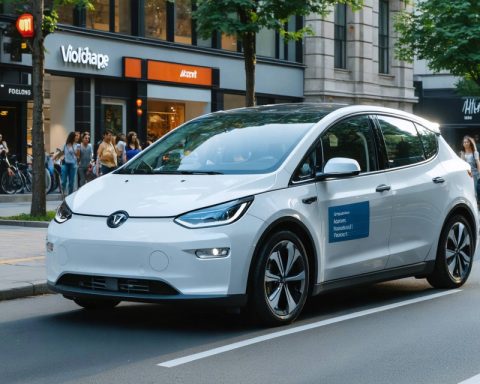- President Emmanuel Macron revitalized France’s Ecological Planning Council, reinforcing the nation’s commitment to climate goals.
- France aims to halve greenhouse gas emissions by 2030; however, recent reductions are insufficient, with only a 1.8% decrease last year.
- Transport and construction sectors are major emission contributors, but the energy sector showed an 11.6% drop in emissions.
- An electric vehicle leasing program for low-income families will relaunch in 2025, targeting transport-related emissions.
- The “zero thermal sieve experiment” will provide resources to improve energy efficiency in homes graded F or G.
- A forthcoming national strategy will promote sustainable, climate-friendly food systems.
- The council aims to narrow the “ecological divide,” focusing on protecting vulnerable populations from climate change impacts.
- France strives for energy independence and a robust green industry to lead Europe’s sustainability efforts.
Amidst a whirlwind of political engagements, French President Emmanuel Macron has rekindled the nation’s ecological ambitions by reviving the Ecological Planning Council. This powerful assembly, dormant for over a year and a half, has been summoned once again to steer France toward a greener future, sending ripples of hope across Europe.
France’s journey towards its climate goals took center stage during the meeting. Acknowledging the country’s sluggish pace in reducing greenhouse gas emissions, Macron’s administration took decisive action. Last year’s emissions saw a mere dip of 1.8%, according to Citepa, France’s official body for pollution monitoring. Though progress is evident, the numbers signal a clear warning—at this rate, France’s aspiration to halve emissions from 1990 levels by 2030 hangs in the balance.
Transport and construction remain France’s Achilles’ heels. These sectors continue to emit stubbornly high levels of carbon, while the country’s once-reliable forests falter in their role as carbon sinks. Yet, all is not bleak. The energy sector reported a commendable decline of 11.6% in emissions compared to the previous year, showing that change is not only possible but also underway.
One of the standout initiatives announced by Minister Agnès Pannier-Runacher was the extension of an electric vehicle leasing program. Initially a pilot, this innovative scheme will provide affordable electric car rentals to low-income families, slated to reopen in September 2025. This represents a crucial step toward reducing transport emissions, particularly in urban centers where pollution chokes the air.
Meanwhile, the fight against climate change takes root at the community level. With the impending “zero thermal sieve experiment,” residents of energy-inefficient homes, particularly those graded F or G, will soon have access to resources and support aimed at boosting energy efficiency. This initiative targets the largest sources of household emissions and is poised to transform neighborhoods one home at a time.
France’s food system is also set for a climate makeover. A national strategy on food, nutrition, and climate will soon be rolled out, making sustainable, climate-friendly dining a norm for every citizen. This holistic approach not only promises a healthier populace but also addresses the ecological footprint of food production and consumption.
Perhaps most compelling is the council’s commitment to bridging the “ecological divide.” This divide doesn’t just threaten nature—it impacts lives. For those already most vulnerable, the effects of climate change are magnified. The council’s mission is clear: safeguard the environment and, in doing so, protect its people, particularly those who need it the most.
In tandem with these measures, France is setting its sights on energy independence and revving up its green industry. This isn’t just about cutting emissions; it’s about revolutionizing France’s economy to lead a sustainable wave across the continent.
The echo of the council’s decisions resonates beyond France’s borders. As Macron tweeted, the nation is steadfast in its climate commitments, and the world watches. Here lies an important message: when strategic planning meets firm commitment, a nation can indeed progress. And as France embarks on this ecological renaissance, its lessons and leadership offer a beacon of hope in the global fight against climate change.
France’s Green Revolution: How Macron’s Ecological Planning Council Sets New Benchmarks
France is embarking on a transformative ecological journey under the reinvigorated leadership of President Emmanuel Macron and his Ecological Planning Council. This assembly, revived after a long dormancy, signifies a pivotal shift in France’s approach to combating climate change and spearheading sustainability efforts across Europe.
Overview of France’s Climate Goals and Challenges
President Macron’s renewed focus underscores the urgency to achieve France’s ambitious target: halving greenhouse gas emissions from 1990 levels by 2030. Despite recent progress with a 1.8% dip in emissions in 2022, this rate poses a significant challenge toward meeting the desired outcome on time. The industrial and construction sectors persist as significant contributors to carbon emissions, while the loss of effective carbon sinks such as forests remains a pressing issue.
However, the energy sector reports a notable 11.6% reduction in emissions, highlighting a successful sectoral shift towards cleaner energy. These mixed results indicate both areas of progress and remaining obstacles in France’s climate agenda.
Key Initiatives Driving France Towards Sustainability
1. Electric Vehicle (EV) Leasing Program: Aimed at reducing transportation emissions, this program will be reopened in September 2025, targeting low-income families to make electric vehicles more accessible. By increasing electric vehicle use, particularly in urban areas, France hopes to significantly cut air pollution levels.
2. Zero Thermal Sieve Experiment: This initiative focuses on enhancing the energy efficiency of homes with low energy ratings (F or G). By providing resources for energy upgrades, the plan is to alleviate household emissions and incrementally improve the energy performance of homes across France.
3. National Strategy on Food, Nutrition, and Climate: Set to be unveiled soon, this strategy aims to integrate sustainable practices into food systems. By promoting climate-friendly dining, it seeks not just to reduce the ecological footprint of food production but also to instill healthier eating habits among citizens.
4. Addressing the Ecological Divide: Recognizing the disproportionate effects of climate change on vulnerable populations, the council is dedicated to reducing this gap. Their efforts emphasize environmental equity, aiming to protect those most at risk while pursuing broader ecological goals.
Emerging Trends and Future Predictions
– Energy Independence: With emphasis on renewable energy sources and technological innovation, France aims to achieve energy independence. This shift promises not just a reduction in emissions but also economic opportunity in the green technology sector.
– Green Industry Growth: As industry trends shift toward sustainability, France positions itself to lead Europe in green manufacturing and clean technologies. This transition may foster economic benefits and set a benchmark for other nations.
– International Influence: France’s initiatives could serve as a model for global climate strategies, promoting international cooperation and inspiring similar reforms worldwide.
Recommendations for Immediate Action
– Individuals: Consider upgrading to energy-efficient appliances or retrofitting your home for better energy conservation. Investigate options for electric vehicle ownership or leasing when they become available.
– Businesses: Invest in sustainability practices, such as reducing waste, opting for green energy, and supporting local sustainable producers. Engage with government incentives aimed at promoting eco-friendly operations.
– Communities: Participate in local sustainability programs and foster discussions on energy efficiency and reduced emissions. Encourage educational initiatives that raise awareness about climate issues.
France’s ecological initiatives set a powerful example, focusing on strategic planning and strong commitment. As the nation strides forward toward an ecological renaissance, the lessons learned can inspire global efforts against climate change, making sustainability a collective responsibility.
For more insights on global climate initiatives, visit CNBC or explore sustainable energy innovations at Forbes.















